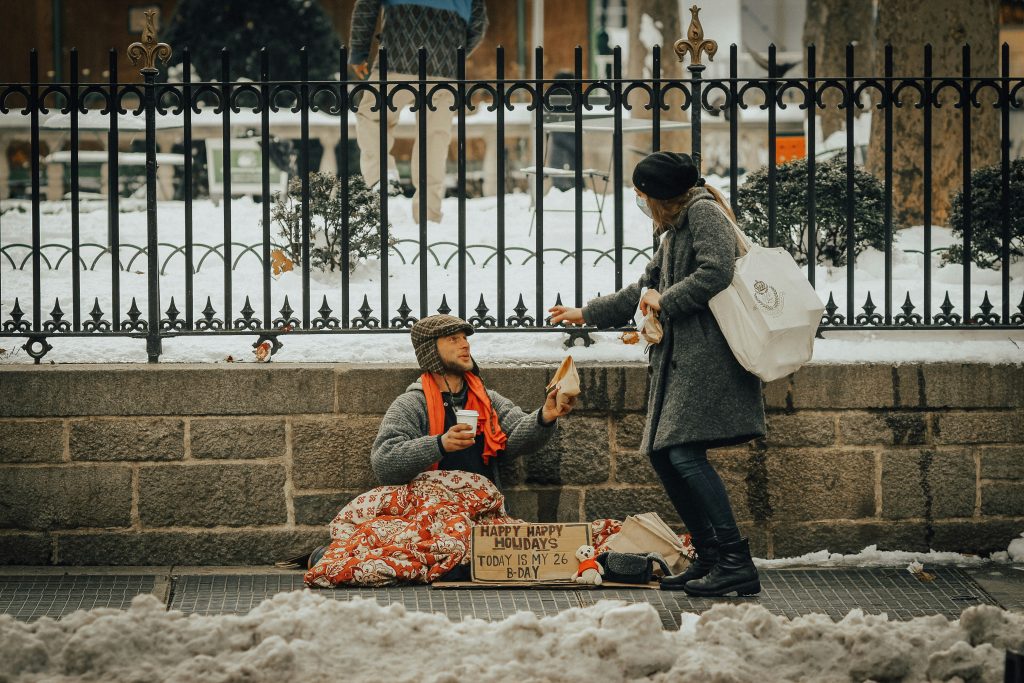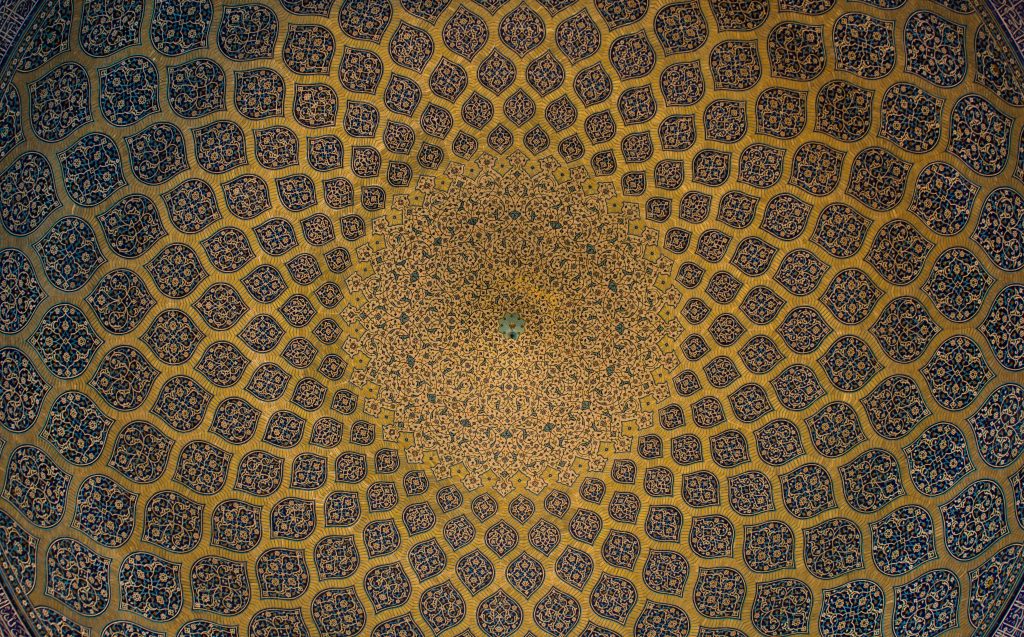Visiting a third world country changes you. Or at least it did for me. Witnessing poverty first-hand was a transforming experience, forcing me to acknowledge the cloak of privilege that enveloped me my entire life. With over half the country’s population living beneath the international poverty line, everyone was struggling to make ends meet. Single mothers were working long hours just to feed their children, the youth were viciously caught up in drug dealing and gang activity since it is the most expedient way to make money, and nearly everyone was settling for any kind of work just for an ounce of stability.
Preaching in a country like that poses a challenge: Religion only matters when all else is taken care of. Why care about the bigger picture when an empty stomach is the most immediate threat? Why entertain the idea of God or stories of past prophets when you have a family to feed? When the consequences of gang violence are a few bad decisions away and the punishment for sinning is so distant, why ponder about attaining salvation? This is reality for people who are barely surviving this life. What care can they have for the afterlife? Any rational human being would do the same.

Abraham Maslow, an American psychologist, acknowledged this same thought process decades ago. He organized human needs into a pyramid, putting the most basic needs for survival at the bottom. This was followed by the need for safety, then love and belonging, then self-esteem, and finally self-actualization being the pinnacle. Maslow believed that in order for people to prioritize the next set of needs in the pyramid, they must fulfill the basic ones first. For example, we must have food, shelter, and sleep so that we survive. Once we fulfill those needs, then we can consider how to maintain them in the long term, which we know as safety and security. Only when we are secure, can we look for people to spend that time with, hence love and belonging. And the pyramid continues so on and so forth.
In this way, Maslow identified that the need for religion is the least of our priorities. Only when human beings have fulfilled all other needs are they justified in pursuing self-actualization – or, in other words, the purpose of life. Maslow’s theory aligned with what I witnessed on my travels. A society so deprived of their basic sustenance that even the thought of attaining spiritual enlightenment was a joke.
And yet I wondered. History is full of moments when disadvantaged people rose above their circumstances, challenging society by focusing on that bigger picture, ultimately bringing about reformation and prosperity. The most vivid example of this was the lifework of the Holy Prophet Muhammad (peace and blessings of Allah be upon him). In a lawless and unforgiving primal Arabia, Prophet Muhammad (peace and blessings of Allah be upon him) preached self-actualization. The purpose and sanctity of human life. The existence and majesty of the One true God. The result? It was the destitute of Mecca who were the first to accept Islam. Slaves, women, children, the needy, orphans, and the weak were the first to accept and even face persecution and death for it. Accepting Islam did not put food on their plates. Rather, it created enemies, turned their families and friends against them, and burned to ashes the remnants of any respect and honor society had for them. Maslow’s pyramid contradicted the actions of these people who turned the world against themselves for the sake of God. What did Islam give the companions of Prophet Muhammad (peace and blessings of Allah be upon him) that was worth sacrificing everything for?
The answer was simpler than I thought. An Islamic pyramid of needs would start with self actualization, everything else coming after it. By accepting Allah and relying on Him, everything else will fall into place. Islam reminded people that needs themselves were created by Allah and they can only be fulfilled by Him. He is Rabb-ul-Alameen, the Sustainer of the universe. Allah is the Sole Provider [1], the One who created the bonds between you and your kin [2], the One who blessed us with the faculty of love [3], the One who created value and defined status [4], and the One who gave us purpose [5].
When we are so wrapped up trying to fulfill our needs that we ignore God, our needs become our God. Prophet Muhammad (peace and blessings of Allah be upon him) freed the Meccan people from this blinding cycle.
Allah wants us to lean on Him. Hazrat Khalifatul Masih II (may Allah be pleased with him) says, “When worldly support is taken away from a person, naturally he will need some other support because man is extremely weak. If a person is weak and ill, he needs crutches or a chair. At times of weakness or illness, man needs support… However, Allah Almighty tells believers never to lie, cheat, or resort to fraud. Now, when the Sharī‘ah has taken all support away from a weak person, what should he do?…Allah Almighty has replied in the words “bow down” (اۡرَكُعۡوا), meaning you should lean on Us and find support in Us. This is similar to someone taking away an older person’s cane but giving him his shoulder to lean on. Similarly, when Allah Almighty has forbidden us from using illegitimate supports, and since we need one support or another, He tells us to lean on Him and take support in Him. Thus, the words “bow down” (اۡرَكُعۡوا) speak of trust in Allah.” [6]
America has conditioned us to believe that we must exude control over every aspect of our life, including the unknown, contrary to human nature. We are not omnipotent. We are not self-sufficient. We do not have perfect foresight. Many things are the product of actions beyond our knowledge or the consequences of the misdeeds of other people. Trying to attain absolute control over such chaos is a madman’s pursuit. This endeavor has bred self-doubt, nihilism, and depression for centuries.
So when the Holy Quran reminds us over and over again that only Allah is Omnipotent, only Allah has perfect foresight, and only Allah has power over everything, it is logical that our survival depends on the Graciousness of that Omnipotent Being [7]. In fact, the purpose of religion has always been to establish Tawheed (oneness of God) in the world. Relying solely on ourselves to fulfill our own needs is impractical and akin to associating partners with Allah.
However, this does not mean that we are powerless. It means we are accountable for our own circle of control. You can deliver an astounding job interview, but whether or not that job becomes your means of sustenance is solely up to Allah. You can make amends after a dispute but whether or not the other party decides to reciprocate is out of your control. We are constantly plagued with loss, death, disease, hunger, betrayal, and all sorts of trials against our will [8]. We never ask to be tried yet unexpected tragedy strikes again and again, teaching us how to learn and grow.
The Promised Messiah (peace be upon him) says, “We implore only Thy help; for, man approaches God, the Supreme, in prayer, after having involved all his faculties in the subject matter of the prayer. It would be impertinent and insolent on his part to come to Him without using his faculties and without observing the requirements of the Law of nature. For instance, if a cultivator were to pray to God to bless his field with a plentiful harvest without preparing it and sowing any seed in it, he would be guilty of insolence and mockery. This is what has been called testing and trying God and that is forbidden.” [9]
He continues, “It is, therefore, necessary to employ all one’s faculties before submitting one’s petition and this is the real significance of this prayer. It is necessary that one should first take stock of one’s beliefs and effort. It is the way of God to bring about a desired change through change in the means. He creates some factor which becomes the means of the desired improvement. Those who consider that if prayer is available means becoming irrelevant should ponder this seriously. They should realize that prayer is in itself a means which activates other means.” [10]

In this way, the Companions of the Holy Prophet (peace and blessings of Allah be upon him) realized that their sustenance was not in their hands. Islam gave them security in the knowledge that as chaotic and callous our world may be, there is a supreme power that lives with them. A power that is eternal and eager to bestow His Guidance. An All-Encompassing, Merciful God who causes “unnecessary events” as purposeful catalysts for change and growth. Despite not knowing what the future had in store, the companions submitted to His will, knowing that, if they did, everything else would fall in place.
References
[1] 11:7
[2] 25:55
[3] 30:22
[4] 4:140, 37:181
[5] 23:116, 51:57
[6] Tafsīr-e-Kabīr, vol. 6, pp. 101-102
[7] 34:23, 11:5
[8] 2:156
[9] Commentary of Surah Fatihah p.190
[10] Commentary of Surah Fatihah pp.190-191



